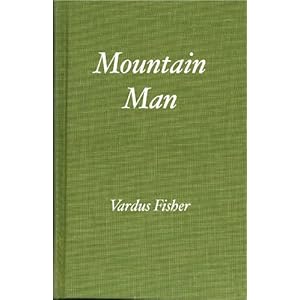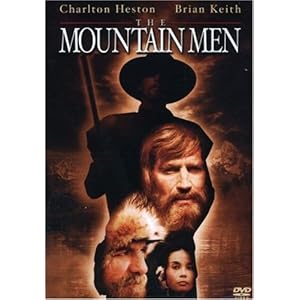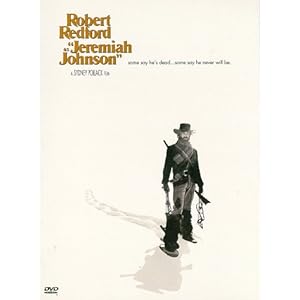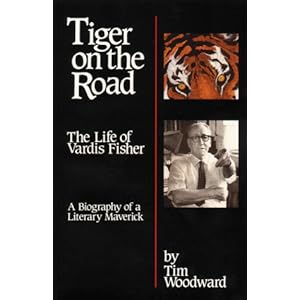|
|
Books by Vardis Fisher and Others |
||||||||||||||||||||||||||||||
|
In the Depression years of the thirties, Vardis Fisher was hailed as one of the most promising authors of the American West. He was compared to his good friend, Thomas Wolfe, or to Faulkner or Hemingway. Before Fisher died in 1968, he was the author of 36 published books, had won the Harper Prize, his work THE CHILDREN OF GOD was published in French, German, Italian, Spanish, and Danish, and he had written 50 short stories and essays for magazines, and had a regular column in the Idaho Statesman from 1943 to 1950. Fisher had written historical novels about the Donner Party, the Comstock load, the Mormons, the Lewis and Clark expedition, mountain man Jerimiah Johnson (which inspired a movie), and a twelve volume set on the evolution of man and religion. Vardis's books are no longer in print. Few know his name or work, although antiquarian book dealers fetch $50 to $100 for his books. Libraries and Universities have special collections of his books. His current obscurity has its roots in both his atheism and the economics of book publishing. Of course, people who cannot find a book in print cannot buy it, and if you have nothing to sell, there is no one to promote your work. Such is the case with Fisher's books, but the reason his books did not find major publishers to begin with and were not promoted was because of his atheistic 12 volume Testament of Man series. In Tim Woodward's biography of Fisher, TIGER ON THE ROAD, he wrote: " No one who read it was luke warm about the TESTAMENT OF MAN. The series evoked reactions from worshipful praise to sneering contempt. It divided critics and scholars -- and anyone else who took the sixty or seventy hours needed to read it - into those who deeply admired Fisher and those who washed their hands of him for good. This was not surprising, as the series questioned some of the most fundamental beliefs in western society." "For its author, the TESTAMENT's toll was beyond calculating. It would cost him twenty of his most productive years, a close friend and publisher, and any hope of maintaining the reputation he briefly enjoyed as one of the nation's up and coming novelists. People told him he was wasting his time on scholarly books that delved deeply into the past when he could have been writing novels that would have secured his reputation as an artist. Few who knew him doubted his ability to write `successful' books, but he wasn't writing the Testament for the best-seller lists. He was convinced he was writing it for the ages."[ Tim Woodward, TIGER ON THE ROAD, Caxton Printers Ltd., Caldwell, Idaho, 1989, p. 160] Fisher was ridiculed by reviewers and vilified in the nations most influential magazines. In order to write the Testament series he had to read over 2000 books on history, anthropology, psychology, theology and comparative religion.[ Ibid p. 162] The series was unique among literary endeavors. The only books I have read that comes close to the kind of books in the Testament are Gore Vidal's CREATION and JULIAN. The twelve Testament books were as follows:
2. THE GOLDEN ROOMS about man's life in caves and the use of fire. 3. INTIMATIONS OF EVE about the prehistory matriarchy and moon worship. 4. ADAM AND THE SERPENT about the patriarchy replacing the matriarchy, and male dominance. 5. THE DIVINE PASSION about worship of the sun god, and women's lot in a male dominated world. 6. VALLEY OF VISION about the embellishment of King Solomon and his conflict with "prophets". 7. ISLAND OF THE INNOCENT about the contrast between the superior Greek culture and Judaism. It asks the question of what the world would be like if Greek values had triumphed over Judaism and Christianity. The religious rebellion of the Maccabees is its setting. (In my opinion this is the second best book of the series.) 8. JESUS CAME AGAIN was the most controversial book of the Testament, because it rejected the divinity of Jesus. This book is about what Jesus would have been like if he were a real person. 9. GOAT FOR AZAZEL is about the pagan origins of Christianity. The concept of a scapegoat is an old Jewish idea of a sin offering of a goat driven into the desert to die. (This, in my opinion is the best book in the Testament series.) 10.
PEACE LIKE A RIVER
(Original title:
Passion Within) about female subjugation and extreme Christian
asceticism (self denial). 11. MY HOLY SATAN about the horrors of the Inquisition. (My number three pick of the series.) 12. ORPHANS ON GETHSEMANE set in this century. This is a book about what has led us to be the way we are, and makes sense of our male dominated, Judeo-Christian, western society, its families, its values, and its wars. The book is semi-autobiographical. When Fisher brought JESUS CAME AGAIN to his publisher, Caxton Press, they refused to publish it unless it was rewritten with a divine Jesus. They explained to him that America was in a cold war with the Soviet Union, and Christianity was the best defense against communism, and that they would do nothing to undermine the Christian ideological hold on American culture.[ Told to me by Opal Fisher; also recounted by Vardis Fisher in fictional form in ORPHANS IN GETHSEMANE, Allen Swallow, Denver 1960, p. 917-919] When Valley of Vision was published, Time magazine led the attack with this review: "STRICTLY FROM IDAHO" Link Idaho's National Day of Prayer - a Counter-Demonstration "Vardis Fisher's latest volume, the sixth in his fictostenographic history of civilization, is less a novel than a pedantic, prurient diatribe against one of the best-publicized kings Israel ever had. Solomon (10th Century BC) is portrayed as a sort of Old Testament Sammy Glick with chin whiskers, a tough little opportunist who elbows his way into the big money, marries a glamour girl (Khate, an Egyptian princess), and hires a frustrated poet to ghost his copy - even, it would seem, such copy as the Book of Proverbs. "Furthermore, says Fisher in effect, Solomon's wisdom was not even his own; it was just a lot of words put in his mouth by his ghostwriter and his Egyptian wife. The real Solomon, according to Fisher, was a phony liberal with a father complex and a massive sexual overcompensation; his quarrel with the prophet Ahijah was an exchange of irrelevancies between an dilettante and a fanatic. "Author Fisher shows some sympathy for the hot-eyed Ahijah. It is almost as though there were some burning affinity between the old eater of stones and howler in the waste places and the seer of Hagerman, Idaho, crying his confused and passionate evangel of history in the wilderness of American letters."{ Vardis Fisher, GOD OR CAESAR, p. 256-257 [Time magazine article is quoted in the book.]} |
|||||||||||||||||||||||||||||||
|
|
Vardis Fisher house near Hagerman, Idao
Link Slideshow |
||||||||||||||||||||||||||||||
|
|
Lake Near Vardis Fisher's home | ||||||||||||||||||||||||||||||
|
Joseph M. Flora in his University of North Carolina book VARDIS FISHER wrote: "… Having been denied a Guggenheim fellowship on four
occasions, a Newberry fellowship, and a Ford Foundation Grant,
he has become accustomed to making his own way, though, midway
through the TESTAMENT, he experienced agonizing struggles with
publishers. Three publishers eventually found the series a poor
financial risk and dropped Fisher, and others were wary of taking
over in the middle of a financially unsound series which was potentially
explosive in its subject matter. Ironically, Fisher expected
the controversy to make these volumes best-sellers. Fisher thought
of himself as a writer for the "long pull" who would
ultimately pay the publisher who stood by him. JESUS CAME AGAIN
and the subsequent TESTAMENT volumes Fisher wrote seemed destined
to be unpublished novels." "Fisher himself was at a loss about what to do, and he was sustained only by his vision of the work and by his wife's confidence. The future of the TESTAMENT brightened only when Alan Swallow, who is especially interested in belles letters of the United States West, approached Fisher about letting his small firm bring out the novels - at a considerable gamble for Swallow, who was, however, absolutely convinced of Fisher's literary merit."[ Joseph M. Flora, VARDIS FISHER, Twanyne Publishers, New York, 1965, p. 23] Also in Flora's Final Judgment chapter he wrote: "The novels (testament) increasingly lead the reader to the conviction that Fisher has not revealed the whole of Western religious heritage: the ring of history - a convincing picture of an area and satisfactory devices for presenting factual background - is not present in later volumes in the same force as in the American historicals, though as partial defense of Fisher one must say that the TESTAMENT becomes increasingly symbolic. This is not to question that the novels are carefully researched, but to assert that (Fisher) never grasped the dynamism of Christianity, which is also a part of history. Fisher has never seen that, though Christianity has been a religion of the desert, it has also been a religion of the valley of vision. Nowhere does he give a convincing portrait of a George Herbert, who lived in the beauty of holiness, nor a Jonathan Edward in all of his complexity and stature. These people are beyond Fisher - who might have recalled Cabell and the dynamic illusion. There is a poetic mysticism and beauty Fisher failed to see."
The TESTAMENT series is not the only writing of Fisher that the atheist will find of interest. His CHILDREN OF GOD demystifies the Mormon story of Joseph Smith. Also of interest are Fisher's newspaper columns in the IDAHO STATESMAN and IDAHO STATEWIDE (became the Intermountain Observer). Tim Woodward in his biography of Fisher states: "Around Christmas time , he always wrote a column saying that there was no Christ. We'd get a bunch of cancellations, but the STATEWIDE was the kind of paper that published things regardless of what people thought. We never censored anybody's writing."[ Tim Woodward, TIGER ON THE ROAD, Caxton Printers, Caldwell, Idaho, 1989, p. 237]
After his death, the Mormon historians Davis Bitton and Leonard Arrington tried to claim Vardis as one of their own because of his stature. In 1976 Arrington presented a paper to the Association of Mormon Letters entitled "The Mormon Heritage of Vardis Fisher." In 1983 Mick McAllister presented to the same group a paper called "Vardis Fisher's Mormon Heritage." This so infuriated his widow Opal Fisher that she sent out press releases about Vardis's atheism.[ Opal Fisher, Press Release, circa 1980] The controversy over Fisher was so great that in late 1996 The Daily Herald newspaper in Provo, Utah, published an article about the conflict and conceded he should not in any way be considered a Mormon. One wonders why they tried this in the first place, but now that they tried and failed, Hartt Wixom in his article "Mormons can't claim Idaho author" seems bitter and out to cast stones at Fisher's reputation. [Hartt Wixom, "Mormons can't claim Idahoan author", The Daily Herald, Provo, Utah, 12/2/96, p. C6] Opal Fisher spoke at the American Atheist Convention in 1981 in Salt Lake City, Utah. Opal Fisher was a member of American Atheists and a regular contributor to the Utah Chapter until her death in 1995. Upon Opal Fisher's death she willed $237,000 from her estate to the University of Idaho for the creation of a humanities professorship.[ Rich Boesler, "Record number donate to UI", The Spokesman-Review, Moscow, Idaho, Thursday, 9/12/96 obtained from http://www.virtuallynw.com/~vnw/stories/ 1996/sep/12/s127018.htm] She also left Albertson College of Idaho a first edition set of all of Fisher's work and additional copies of his works which the college will sell to create a scholarship fund. Albertson College also received an enormous amount of books from Fisher's private collection.[ Associated Press, "Woman leaves scholarship fund, set of books to Albertson College", Caldwell, Idaho, 10/17/96] Now that both Vardis and Opal are dead, and unable to defend their writing or see how their donations have been used, Albertson college slights Fisher's TESTAMENT work in this section of the Vardis Fisher biography on the college's web site: VARDIS ALVERO FISHER
"His other path nearly destroyed Fisher's career. In 1939, unsatisfied by the tetralogy, Fisher determined to find the human character in the history of the species and began a series of novels that would culminate in a revision of the tetralogy. The twelve-volume TESTAMENT OF MAN which began with some promise, soon degenerated into didactic polemics. The early novels on prehistoric man, DARKNESS AND THE DEEP and THE GOLDEN ROOMS, compare favorably to other attempts in the genre. Others, such as three on the evolution of Judaism, are less successful. A superb retelling of the death of Jesus (JESUS CAME AGAIN) is the literary high-point of the remaining books. "By the time the "Testament" had reached the early Christian era, Fisher was established in his fourth literary role, as state curmudgeon, through weekly columns in various Idaho papers. He had found a kindred spirit in J.H. Gipson of the Caxton Press, but even Gipson refused to publish books with the Testament's negative view of Christianity. Fisher and Gipson shared vehement atheism and vehement anticommunism; ironically, as Fisher's biographer Tim Woodward points out, Gipson's objection came not from a desire to promote religion but from the belief that books so destructive of Christian values would promote communism. "Through the patronage of publisher Alan Swallow, Fisher was able to complete the Testament in 1960 with a single-volume revision of the tetralogy that brought Hunter's story up to the late 1950s. Eight years later, a few days before his death, he told a Salt Lake City reporter that he had begun his autobiography. Had he completed that book, it is possible that the relationship between the fictional Hunter's life and the life Vardis Fisher would have been further confused, though it might also have been clarified. "The continuing theme throughout Fisher's work is an obsessive dedication to learning and promulgating the truth, the Socratic need to know thyself. His historical fiction is notable for its foundation in meticulous research and its rigorous objectivity. Despite his vehement and unwavering dislike for Mormonism, his novel on the beginnings of the church is admired by believer and non-believer alike. The Testament's greatest power is its ability to describe sympathetically the visionary element of the Judeo-Christian world-view to which Fisher traces most of the cultural neuroses of modern America.
By any standard, Vardis Fisher led an extraordinary and exemplary life. Fisher was born in the Western frontier in Annis, Idaho, in 1895 to Joe and Temperance Fisher. Vardis Fisher's father Joe and one of his brothers were sent by Brigham Young to start a colony in the Upper Snake River Valley. Accordingly when Vardis was six years old, his father loaded the family onto a dead axle wagon and headed up the South Forks of the Snake River thirty-six miles. The nearest neighbor was ten miles from the Fishers when they stopped, and that was just the way Vardis' father wanted it to be. (Vardis' mother would be in her fifties before she had a house with running water. [TIGER ON THE ROAD, p. 22] ) With no schools nearby Vardis was taught by his mother until he was twelve.[ Milton, John K., THREE WEST: CONVERSATIONS WITH VARDIS FISHER, MAY EVANS, MICHAEL STRAIGHT 1970, Dakota Press, University of South Dakota, Vermilion, South Dakota] Then the family decided Vardis and his brother were old enough to go to school in Annis, and the two boys spent a year living there with their Aunt Phoebe. By the time Vardis was thirteen and his brother Vivian was ten, the family had decided the boys could manage on their own and found a vacant house near Annis for them. The parents stocked the house with fruits, dried meat, bread and goose grease butter, blankets and clothing. For half a year the boys were alone in a land where it could be dangerous to take out the garbage.[ TIGER ON THE ROAD, pp. 44-45] For most children a fourth grade education was considered enough for Antelope country, but the Fisher children would go on to college. It was in Annis that Fisher met his childhood sweetheart, Leona McMurtrey, a woman he married in 1917.[ Ibid, p. 46] After Fisher had graduated from high school, he went to Salt Lake City to the University of Utah. Idaho had only one college, in Moscow, and that was further away than Salt Lake. After Fisher received his BA, a professor he liked encouraged him to go to graduate school at the University of Chicago. In Chicago Fisher first experienced how the non-Mormon world lived. After receiving his MA he went back to the University of Utah to teach, but did not feel academically secure in this position, and returned to the University of Chicago for his Ph.D. Fisher again returned to Utah to teach, but this time he began to have trouble with the Mormon Church and knew after three years that he could not reach tenure before the Church hierarchy would have him fired or force him to resign. He applied and was accepted for a position at New York University in Washington Square.[ THREE WEST, pp. 5-7] When Fisher left New York University he had a wife and two children. He returned to Idaho in 1931 to write novels, and was hired by the Work Progress Administration (WPA federal writers project) as the state director in 1935.[ Ibid, p. 8] Fisher wrote THE GUIDE TO IDAHO for the WPA, and his office was the first among state offices to publish. Fisher's first wife Leona died in 1924. In 1928 he married Margaret Trusler and had one child with her. In 1940 he married Opal Laurel Holmes and lived with her in Haggerman Idaho until his death in 1968.[ Nielsen, Judith, http://drseuss.lib.uidaho.edu/special-collections/manuscripts/mg218.htm, "Manuscript Group 218, Vardis Fisher, 1895-1968", August 1990] While married to Opal he co-authored a book with her on gold mines of the old west, GOLD RUSHES AND MINING CAMPS OF THE EARLY AMERICAN WEST (Caxton press, 1968).
Vardis Fisher's TESTAMENT OF MAN books were a bold attempt by a lone atheist to popularize his atheism. Though his attempt to do this was not a complete success, his books are still with us and could still be used as a tool for the advancement of atheist philosophy. One can only hope that Fisher's TESTAMENT will find its way back into print so that another generation of hungry minds will not be denied access to one of the greatest historical fiction series ever written. The impact of fiction can be great. No one would deny that Rushdie's SATANIC VERSES will make a lasting impression on Islam. If Atheists could find a way to use the TESTAMENT and make it as available as the VERSES, it could have a major impact on religion in general.
|
|||||||||||||||||||||||||||||||
 |
Mountain Man City of Illusion Suicide or Murder? : The Strange Death of Governor Meriwether Lewis Children of God Gold Rushes and Mining Camps of the Early American West A Goat for Azazel Mothers an American Saga of Courage Dark Bridwell In Tragic Life Pemmican Love and Death Tale of Valorz Testament of Man |
 |
|||||||||||||||||||||||||||||
| Links Vardis Fisher Library |
The Jesus Puzzle: Was there no Historical Jesus? by Earl Doherty |
||||||||||||||||||||||||||||||
|
|||||||||||||||||||||||||||||||
|
Footnotes:
1 Tim Woodward, TIGER ON THE ROAD, Caxton Printers Ltd., Caldwell, Idaho, 1989, p. 160 2 Ibid p. 162
3 Told to me by Opal Fisher. Also recounted by Vardis Fisher in fictional form in ORPHANS IN GETHSEMANE, Allen Swallow, Denver 1960, p. 917-919
5 Joseph M. Flora, VARDIS FISHER, Twanyne Publishers, New York, 1965, p. 23
7 Tim Woodward, TIGER ON THE ROAD, Caxton Printers, Caldwell, Idaho, 1989, p. 237 8 Opal Fisher, Press Release, circa 1980 9 Rich Boesler, "Record number donate to UI", The Spokesman-Review, Moscow, Idaho, Thursday, 9/12/96 10 Associated Press, "Woman leaves scholarship fund, set of books to Albertson College", Caldwell, Idaho.
11 Mick McAllister, "Vardis Alvero Fisher", http://www.media.utah.edu/medsol/UCME/f/FISHER,
12 TIGER ON THE ROAD, p. 22 13 Milton, John K., THREE WEST: CONVERSATIONS WITH VARDIS FISHER, MAY EVANS, MICHAEL STRAIGHT 1970, Dakota Press, University of South Dakota, Vermilion, South Dakota 14 TIGER ON THE ROAD, pp. 44-45 15 Ibid, p. 46 16 THREE WEST, pp. 5-7 17 Ibid, p. 8 |
|||||||||||||||||||||||||||||||
|
RICHARD ANDREWS
- Founder of the Utah Chapter
of American Atheists in March of 1979. He was the
Chapter Director until 1982, and then served as Co-director with
Chris Allen until the chapter closed in November of 1993. In those
early, heady days, Richard Andrews set up a booth for Atheism at the
state fair, a lecture on Atheism at the city library, a regular
radio talk show on Atheism and the inauguration of its
Dial-an-Atheist service. In 1983 he worked with
Chris Allen
on a project that put 400 advertisement posters for Dial-an-Atheist
in Utah buses. In 1986 Andrews,
working with
Dan Favatella, stopped an attempt by religious hospitals to gain
constitutional exemption from property taxes. Andrews and the
Utah Chapter of American Atheists defeated the constitutional
amendment. The Catholic and Protestant hospitals were later
sold to for-profit hospitals. He was the principal plaintiff in a legal case against the Utah Highway Patrol Christian Crosses. He was actively involved with the Utah Education Association's (Utahns for Public Schools) campaign against vouchers. He currently serves on the boards of directors for the Society of Separationists, American Atheist GHQ, and United Secularist of America, Inc.
|
|||||||||||||||||||||||||||||||
|
|||||||||||||||||||||||||||||||
|
|
|||||||||||||||||||||||||||||||








 Vardis Fisher was an extremely important American author who never
failed to talk and write about atheism. Never failed to say he
was an atheist and was proud of his atheism. He did this in one
of the most conservative states of the Union between 1930 and
1968 when he died. That type of courage is heroic and much needed
in our country today.
Vardis Fisher was an extremely important American author who never
failed to talk and write about atheism. Never failed to say he
was an atheist and was proud of his atheism. He did this in one
of the most conservative states of the Union between 1930 and
1968 when he died. That type of courage is heroic and much needed
in our country today.




